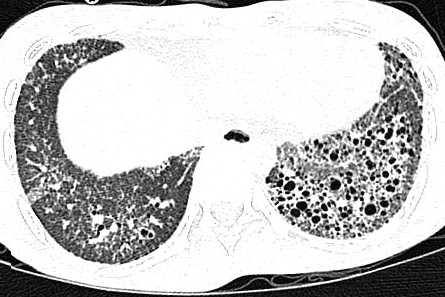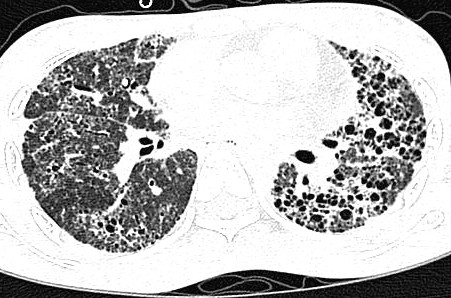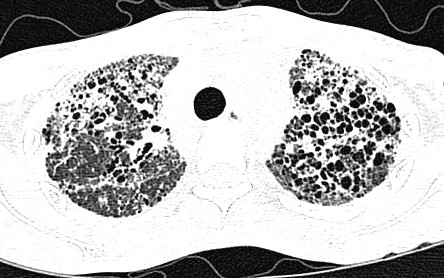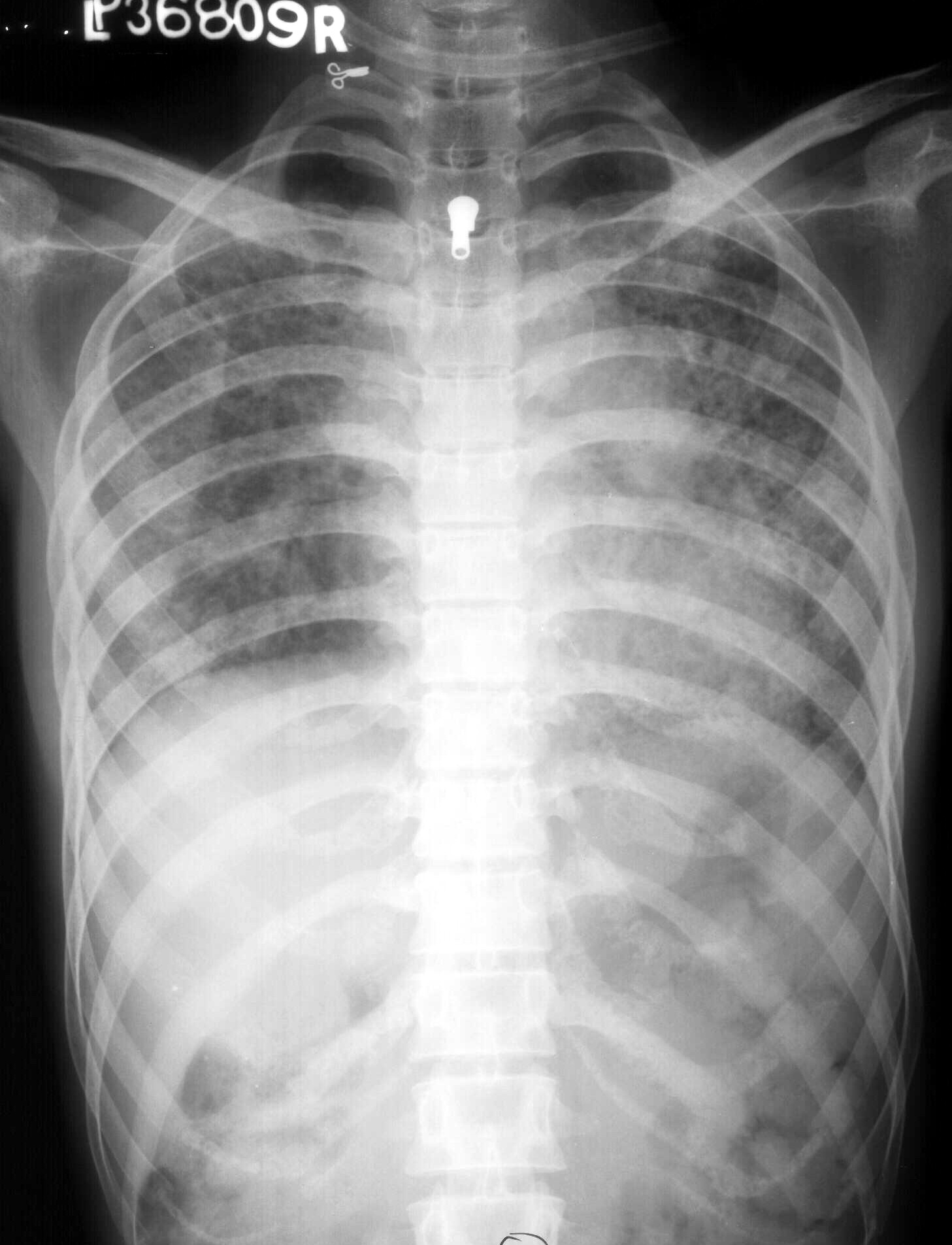Hypersensitivity pneumonitis (HP), also called extrinsic allergic alveolitis, is a complex syndrome of varying intensity, clinical presentation, and natural history, rather than a single uniform disease.
Pathologically, acute HP is characterized by poorly formed noncaseating interstitial granulomas and mononuclear cell infiltration in a peribronchial distribution with prominent giant cells.
The subacute, or intermittent, form produces more well-formed noncaseating granulomas, bronchiolitis with or without organizing pneumonia, and interstitial fibrosis.
Chronic forms reveal additional findings of chronic interstitial inflammation and alveolar destruction (honeycombing) associated with dense fibrosis. Cholesterol clefts or asteroid bodies are present within or outside granulomas.
The pathologic features of chronic HP, often associated with a poor prognosis, have the following 3 patterns of fibrosis.
Predominantly peripheral fibrosis in a patchy pattern with architectural distortion and fibroblast foci similar to usual interstitial pneumonia (UIP)Homogeneous linear fibrosis similar to fibrotic nonspecific interstitial pneumonia (NSIP)
- Irregular predominantly peribronchiolar fibrosis
History: The clinical presentation of HP is categorized as acute, subacute, or chronic, according to duration of illness.
- Acute HP
- The acute form may develop 4-6 hours following heavy exposure to an inciting agent. Symptoms often resolve spontaneously within 12 hours to several days upon cessation of exposure.
- Patients abruptly develop fever, chills, malaise, cough, chest tightness, dyspnea, headache, and malaise.
- Subacute (intermittent) HP
- Patients may gradually develop a productive cough, dyspnea, fatigue, anorexia, and weight loss.
- Findings may be present in patients who experience repeated acute attacks.
- Chronic HP
- Patients often lack a history of acute episodes.
- They have an insidious onset of cough, progressive dyspnea, fatigue, and weight loss.
- Removing exposure results in only partial improvement.
Imaging Studies:
- Chest radiograph
- In acute HP, a diffuse micronodular interstitial pattern (at times with ground-glass density in the lower and middle lung zones) may be observed. Findings are normal in approximately 10% of patients.
- In subacute HP, micronodular or reticular opacities are most prominent in mid-to-upper lung zones.
- In chronic HP, progressive fibrotic changes with loss of lung volume particularly affect the upper lobes. Nodular or ground-glass opacities are not present. Features of emphysema are found on significant chest films and CT scans.
- High-resolution CT scan
- Ground-glass opacities or diffusely increased radiodensities are present in the acute phase of disease.
- In subacute disease, diffuse micronodules, ground-glass attenuation, focal air trapping, and mild fibrotic changes are observed.
- In chronic HP, several patterns may be observed, including multiple centrilobular nodules with some ground-glass attenuation, radiolucency or air trapping, extensive fibrosis and honeycombing, and traction bronchiectasis.






